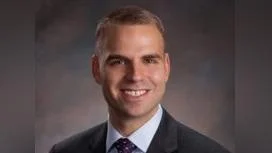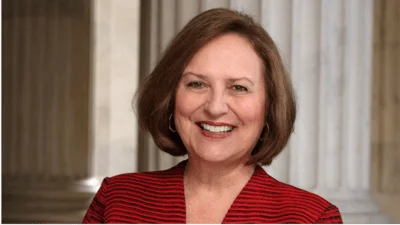Ryan McIntosh Nebraska State Director | NFIB Nebraska
Ryan McIntosh Nebraska State Director | NFIB Nebraska
The NFIB Small Business Optimism Index increased by 1.7 points in July, reaching 100.3, which is slightly above its long-term average. The rise was mainly driven by more small business owners reporting improved business conditions and a belief that it is a good time to expand operations. However, the Uncertainty Index also rose by eight points to 97, indicating ongoing concerns among business owners.
Labor quality emerged as the most significant challenge for small businesses, with 21% of owners identifying it as their top issue—an increase of five points from June.
“Optimism rose slightly in July with owners reporting more positive expectations on business conditions and expansion opportunities,” said NFIB Chief Economist Bill Dunkelberg. “While uncertainty is still high, the next six months will hopefully offer business owners more clarity, especially as owners see the results of Congress making the 20% Small Business Deduction permanent and the final shape of trade policy. Meanwhile, labor quality has become the top issue on Main Street again.”
Ryan McIntosh, NFIB Nebraska State Director, commented on local sentiment: “In Nebraska, business owners are optimistic about future sales and are planning capital expenditures. The 20% small business tax deduction being made permanent has a lot to do with this confidence boost. However, labor quality issues are becoming a significant hurdle that needs addressing.”
Survey data showed an improvement in overall business health ratings: 13% of respondents described their businesses as excellent (up five points), while those rating their businesses as good increased by three points to 52%. The percentage reporting fair or poor conditions declined.
Poor sales were cited as the main problem by 11% of respondents—the highest since February 2021—while inflation remained unchanged at 11%, marking its lowest level since September 2021.
Expectations for better business conditions saw a notable jump; net expectations rose by 14 points to a seasonally adjusted net 36%. Sixteen percent said it was a good time to expand their businesses—five points higher than June.
Plans for capital outlays increased modestly; seasonally adjusted figures show that 22% plan such investments in the next six months. Job openings that could not be filled dropped three points from June but remain above historical averages. Of those hiring or trying to hire in June, most reported few or no qualified applicants.
The share of owners citing labor costs as their biggest problem fell slightly to 9%. Reports of raising compensation also decreased compared to June.
More than half (55%) reported capital outlays over the past six months—a five-point increase from June—with spending focused primarily on equipment and vehicles.
A net negative reading persisted for both recent sales and inventory gains compared to previous months. Price increases remain common; although fewer planned price hikes than in June, levels remain above historical averages.
Profit trends stayed negative overall; weaker sales were most often blamed for lower profits among respondents who reported declines.
Borrowing activity among small businesses remains historically low; only four percent identified financing and interest rates as their main concern in July.
Taxes were cited as the second-most important problem after labor quality but fell two points from June’s survey results. Fewer respondents pointed to government regulations or competition from large firms as primary challenges compared with previous months.
The NFIB Research Center has been conducting these surveys since the early 1970s using random samples drawn from its membership base. Results are released monthly following data collection—in this case conducted during July 2025.





 Alerts Sign-up
Alerts Sign-up